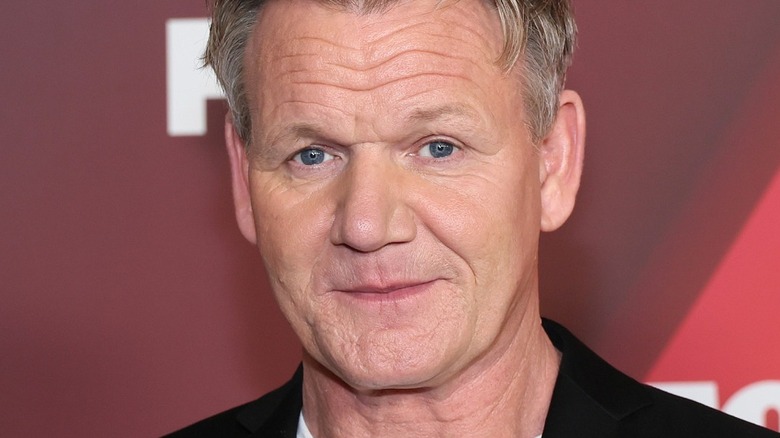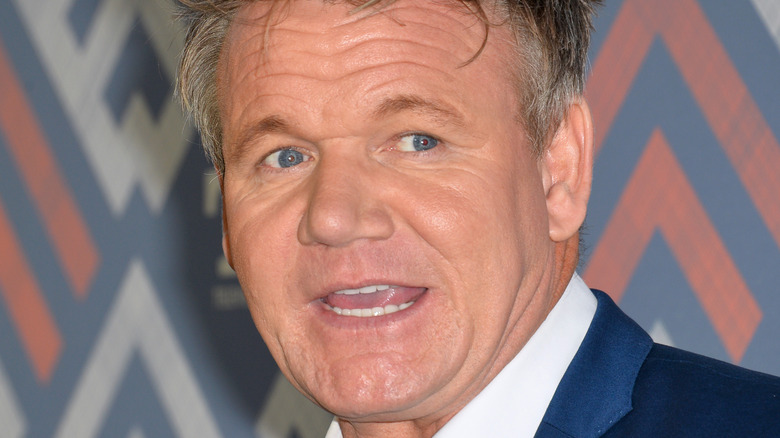Why Brits Have A Huge Problem With Gordon Ramsay's New Restaurant
Gordon Ramsay needs no introduction. The famously foul-mouthed chef, restauranteur, television personality, and author has collected 16 Michelin stars, authored more than 40 books (per Thrift Books), and racked up enough film, television, and even video game credits to tire out your scrolling finger. Ramsay's success, however, has come despite having been beleaguered by controversy over matters ranging from millions in unpaid tax debt to run-ins with the law and sexist, homophobic remarks. Ramsay's response has consistently been to fight back against his critics in a manner wholly consistent with his fiery on-screen persona. So, it should perhaps come as no surprise that Ramsay's reaction to charges of cultural appropriation over one of his newest restaurants was nothing less than defiant.
The politics of food are complicated, especially where they intersect with issues of race, culture, and appropriation, which can be traced along the trajectories of exploitation, white supremacy, and Eurocentrism that have persisted throughout history. Writing for the Cornell Sun, a second-generation Chinese-Vietnamese American writer explored how, for example, what is now billed in some U.S. restaurants as a bánh mì sandwich contains cold cuts and pork belly rather than the meats traditionally used in the Vietnamese dish. "When restaurateurs take cultural foods and modify them, they disrespect the culture," she writes. So, why are people concerned Ramsay's new restaurant venture will cause him to face allegations of cultural appropriation?
Ramsay is likely to face renewed allegations of cultural appropriation
When Gordon Ramsay opened Lucky Cat in 2019, it wasn't just that the celebrity chef — whose success perhaps typifies the dominance of white men in the food and restaurant industries — billed his new restaurant as "an authentic Asian Eating House," according to Eater. Nor even that Ramsay put another white man in charge of its kitchen, arguing the chef's travels to Asia were sufficient evidence of his qualifications. The controversy really began to escalate when Angela Hui, invited to preview the restaurant before it was opened to the public, wrote in Eater that neither the food nor the décor lived up to the establishment's claims of "authenticity." Additionally, she wrote, "I was the only east Asian person in a room full of 30-40 journalists and chefs." (Settling the question of whether Ramsay deserved the benefit of the doubt, Lucky Cat used to serve a vodka-based drink called the "White Geisha," per Next Shark.)
For his part, Ramsay responded to Hui's review (and related posts on social media) with a statement calling them "derogatory and offensive" (per the Huffington Post). It was far from his last word on the matter, however. As reported in Time Magazine, the dustup spotlighted broader themes about cultural appropriation, especially with respect to East Asian cuisine and specifically Chinese food. And three years later, Eater reports Ramsay has plans to open a second Lucky Cat location, which is likely to reignite the controversy — especially in the absence of evidence that Ramsay learned anything the first time.

